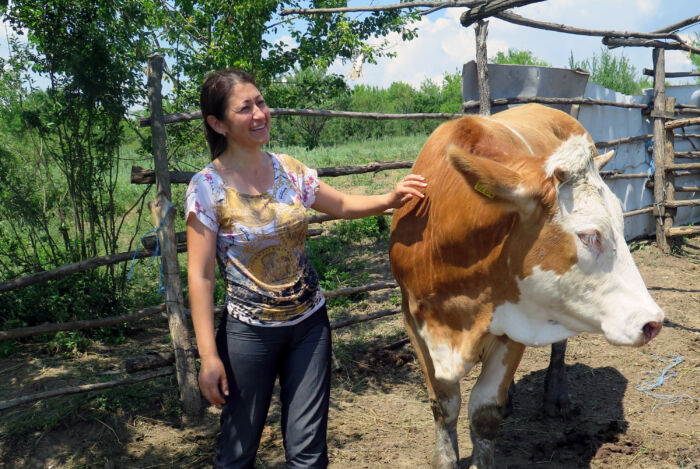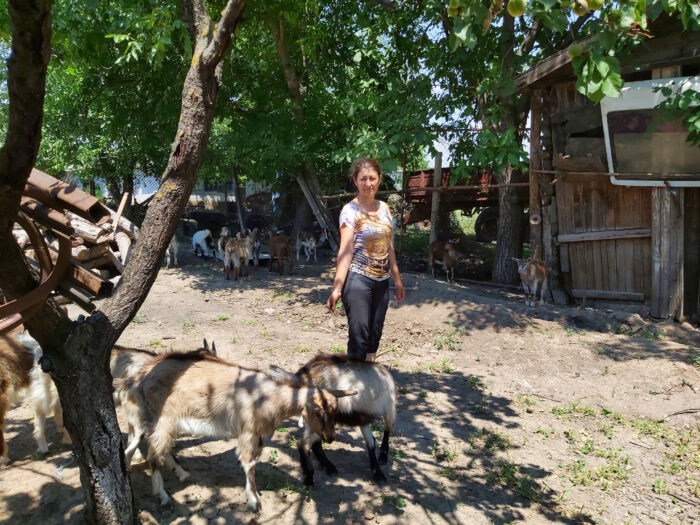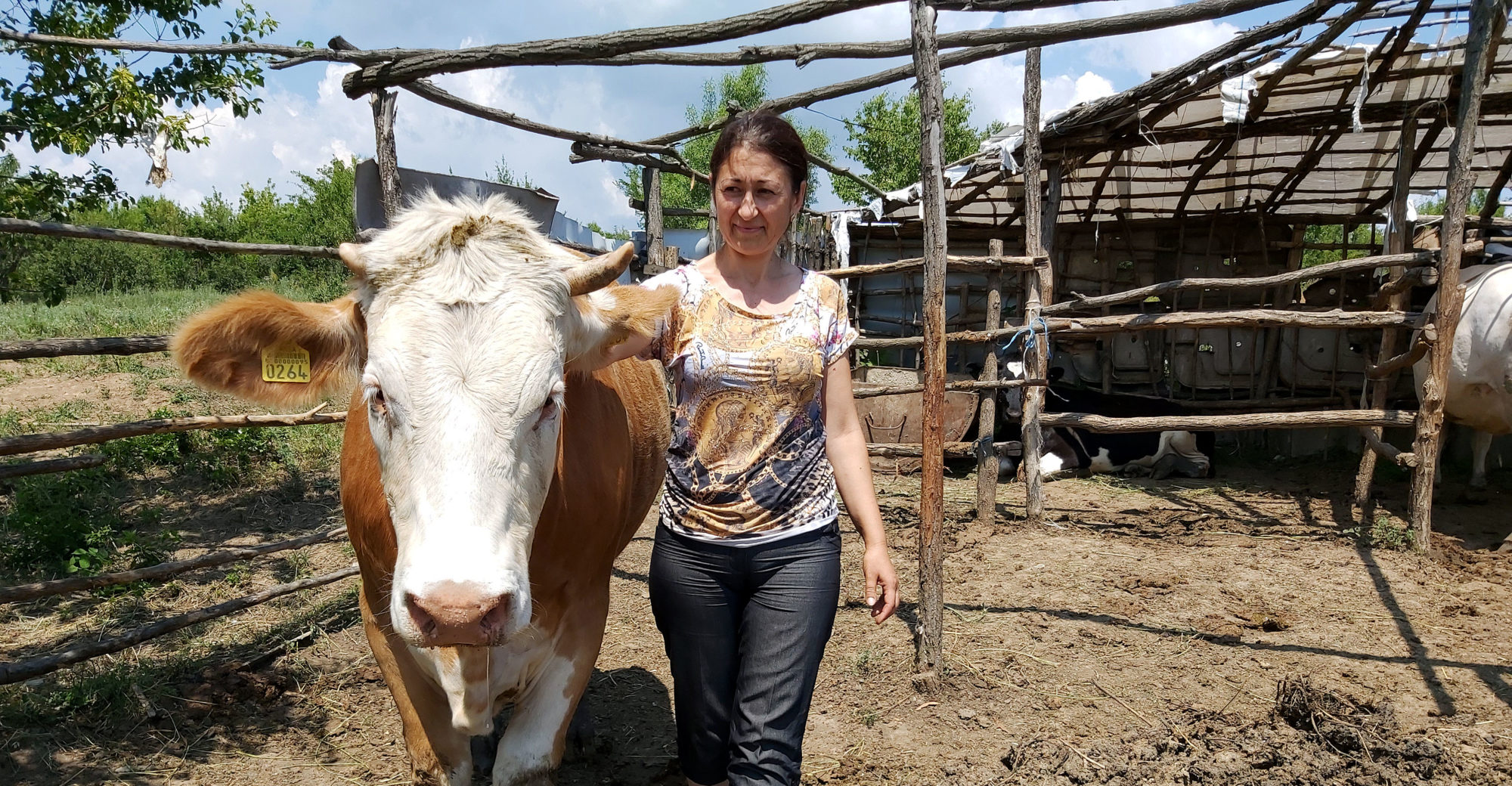Investing in agriculture came natural to Ludmila after returning to her native country. Even before going to Moscow, she and her family were farmers.
“We had only four cows and everything was done manually. We had no equipment and no means to expand,” Ludmila recalls. Going abroad was a window of opportunity for securing a better future.
Like many Moldovans that decided to seek their fortune abroad, Ludmila has been forced to make sacrifices, but the experience also encouraged her to take risks. So, she was ready to make bold choices in order to move forward and succeed as a farmer in Moldova.
Since she decisively took the lead in running the family farm, her husband decided to give her the ownership of the farm and all the land. This way she could easily manage the business that they were about to embark on – milk production.

“Here in Moldova it is more common for the women to lead, so he was happy to give me the farm,” she says through laughter, although admits that there was an additional stimulation for making this choice – the state gives 15% bonus if the women are applying for state subsidies or grants, something that they have benefited from in the past.
But the turning point in her growth as a farmer was the support she received from We Effect’s partner organization, the National Farmers Federation of Moldova (NFFM). They helped her gain information and knowledge, provided trainings in financial literacy and she was also able to participate in farming exhibitions and study visits abroad. During one of those study trips in the Netherlands she visited dairy farms with the famous Holstein Friesians, the highest milk producing breed of dairy cattle in the world.
“That’s when I decided to buy Milka,” she proudly says and the biggest smile spreads across her face. The affection that Ludmila has for this particular animal of Holstein Friesian breed is obvious. Milka is the prime hallmark of her herd of cows and she is keeping the female calves in order to increase and improve the quality of the herd.
Depending on the season and availability of fresh grass and fodder Milka can give between 30 and 40 liters of milk a day. On average, Ludmila collects 160 liters of milk per day from her 13 cows, while 100 liters are collected from the other farms in the village, so in total 260 liters of milk per day are stored in the lacto-freezer that she owns on her farm. She sells the milk on a daily basis to the biggest dairy processing plant in Moldova.

In addition to the cows, Ludmila has 20 goats on her farm from which her family ensures additional income since the profit that they gain from selling only cow’s milk is not high. They have a separate lacto-freezer for the goat’s milk and a fully functional small processing unit for producing goat’s cheese.
“Now I have all the necessary equipment for milking the animals and storing the milk, but I would like to expand the processing unit,” says Ludmila hoping that soon they would be able to process also the cow’s milk and sell the products directly to the shops, ultimately funneling more profits for themselves.
Armed with the knowledge acquired at the financial literacy trainings she is already working on a business plan. She says that her children, her daughter and son, are the ones that give her strength to always strive to move forward.
“I am thinking about their future and I want to build a real family business,” she says.

Ludmila is clearly an ambitious and extremely energetic woman who simply can’t sit still. So it comes as no surprise that she won the national contest for best woman in business last year. This is a great recognition and an honor for her, although being a female farmer is not an easy task. It requires heavy commitment, lots of sacrifice and hard work. And there are also the big challenges ahead such as access to market, finances and even labor force, due to the high migration.
Moldova is one of the poorest countries in Europe with a very high rate of migration, especially to the EU countries and Russia. After the fall of the Soviet Union, the country faced difficult transition which led to a collapse of the living standard. This prompted the high migration, especially among the rural population. But the positive news is that 80% of the young people that are returning to Moldova are investing in agriculture.
